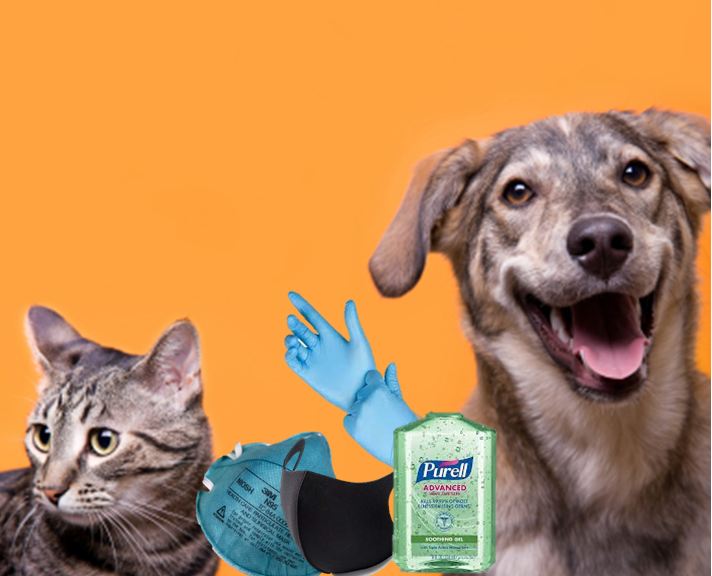Pets and Post COVID-19 Concerns
Jun 8, 2020 Tracey Aston Health & Wellness

The world has changed. No one is arguing that. Words like
pandemic, social isolation and CDC guidelines have become normal everyday
topics now. We all have to make changes and get used to new ways of life, which
includes our pets and Professional Pet Care Specialists.
A lot of families are concerned about their pet suffering
from separation
anxiety once they go back to work. If your pet has never shown signs of separation
anxiety in the past, they may not experience it now. Pets
thrive on routine. If you think your pet is suffering from separation
anxiety or is showing signs they didn't before the pandemic, it may simply be
your pet getting back into a routine and that takes time.
To help your pet get used to you not being around all the
time, start preparing them by leaving for short intervals, several times a day,
whether to go grocery shopping or run an errand. If your pet had a Professional Pet Care
Specialist before the quarantine, start taking your pet for a walk or go on a
brief potty break around the time your Professional Pet Care Specialists would
normally show up to get them used to that routine again.
Masks and gloves have become an everyday part of our lives
but they can create a dangerous situation for strangers and Professional Pet
Care Specialists if a pet hasn't been properly socialized with them. Our pets
pick up a lot from body language and facial expressions and masks cover a large
part of our faces. In addition to
covering our faces, masks inhibit our scent and pets live by their noses. Both
covering the face and muffling the scent can cause a pet to be confused,
anxious and possibly aggressive. Gloves
smell different than a human hand, and have a different texture. Stroking a pet with gloves on can also cause
static which while it doesn't hurt the pet, can be a confusing sensation they
don't equate with petting. For cats who don't go out on a walk, the pet sitter
must use the mask the entire visit and the anxiety and fear may continue to
heighten in the cat leading to abnormal behavior or bites.
Everyone entering your home should be using hand sanitizers
to keep everyone safe. Keep in mind, the chemicals used in hand sanitizers are
poisonous for our pets. This can affect a pet if they are licking someone's
hands who has just used hand sanitizer. We recommend using gloves to help
protect the pets from hand sanitizers and possible poisoning. Professional Pet
Care Specialists should be changing gloves after each visit per CDC guideline.
You can help your pet now by slowly getting them used to masks
and gloves. Allow them to sniff your mask, put it on briefly and sit around the
house as your normally would. When a pet is interacting with the mask, it's
imperative you create a positive association by offering praise and
treats. If you need more help on getting
your pet socialized to new objects and things, our article on
socialization can help.
This is a new world for our all, helping your pet now can
set them up for success and keep those who will be interacting with your pet
safe. If your pet is showing signs of aggression to masks or gloves and you are
having problems, reach out to a professional trainer or behaviorist in your
area.
















